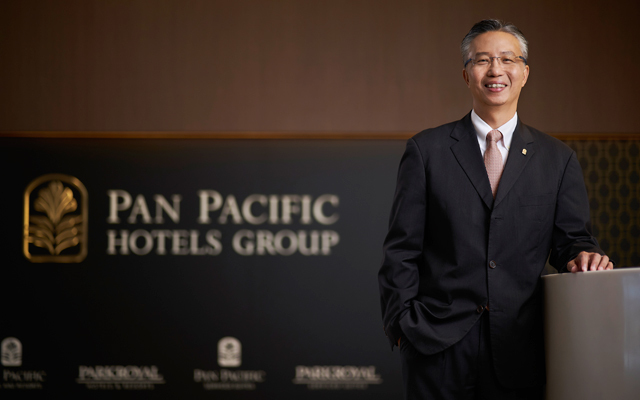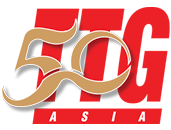Downtimes present a chance for internal reviews and improvement, and for holding staff and communities close, says Pan Pacific Hotels Group CEO Choe Peng Sum

How is Pan Pacific Hotels Group (PPHG) faring amid this pandemic and hospitality crisis?
All of us put on our SARS hat when the outbreak first started. We did up a one-year plan but soon realised we had to cut that up by quarters because there was no way to know when the recovery would happen this time round. With SARS, tourism came back up quite fast. Not this time. We are now already in August.
We will need both prudence and courage to get through this long stretch.
The one thing I’m thankful for is that 80 per cent of our property revenue are from Singapore and Australia. These two countries have very supportive, pro-business governments.
In Singapore, we have five hotels and three serviced suites, with one more coming up. With the Stay Home Notice (a government-imposed measure to guard against imported cases from arriving travellers and residents) and the quarantine business, our properties have been kept busy. We are also thankful for the (government) reliefs for wages and property tax.
We are running at almost 100 per cent, although average rates have been halved. Still, you would never have imagined being able to run full in such a crisis.
Australia has isolation programmes too, and a lot of our hotels are running full as a result. The government there has the JobKeeper Payment, which helps to keep more Australians employed through reliefs for businesses.
We are actually pretty afloat. We are able to pay salaries and expenses, and still have positive cash flow. Without cash flow, we will have to start to think about retrenchment, downsizing teams, etc.
Obviously, we have stopped hiring and a lot of us have to take pay cuts and no-pay leave.
We also had to make some painful decisions very early on to preserve our cash flow. Our China properties were the first to be hit, and with the lockdown, not a single soul was on the streets. We told our teams to take a huge pay cut but we promised to retain them. They accepted the bitter pill. Within two months, around March, we managed to reopen. Right now, business is pretty encouraging – we are doing about 70 to 80 per cent in Tianjin, Ningbo and Xiamen. There was a second wave in Beijing (in July) which brought occupancy down to single digit, but business bounced back quickly to double digit. We are now doing 40-odd per cent there. That’s not bad at all.
(All these decisions were made) while keeping a close eye on our cash flow. We have a war room team that is made up of the best personnel in the business, from finance, asset management, yield management, human capital, etc.
Attention is paid to revenue preservation, which is why many of our properties are very gung-ho about just taking any business.
Is the stress less pronounced now that public activities are resuming and domestic tourism is starting up again in some markets?
Markets with a bigger domestic appetite have a better chance of recovery, like China.
We closed down our properties in North America, and are only starting to reopen them. The Americas have a big domestic market, so tourism has the best chance (for recovery through domestic travel) as long as social distancing is done properly.
Australia also has a big domestic market. Even during pre-Covid days, as much as 80 per cent of our business comes from interstate leisure travel.
Our big concern lies in places like Singapore and most parts of South-east Asia where the domestic travel market is not strong.
Right now, in Singapore, we are being helped all the way to December (by government relief). Staycation demand in November and December will be rather strong, driven by young people who are willing to spend money on such experiences. After (the holiday season), staycation demand would come in only over the weekends.
But what’s the outlook for the first and second quarter of 2021? Most cities in this region require support from international travel, and at this point, we cannot see how international travel will return. Sole dependence on a domestic market can be frightening.
What could turn things around?
We think that the green lanes might help (with the initial stages of recovery). Nobody wants to travel when they have to serve 14-day quarantines on both sides.
Can your F&B takings make up for the accommodation side?
Our restaurants are doing quite well. On weekends, they are full, full, full. There is a huge pent-up demand for dining out, after the lockdown.
The thing is, with hotels, profitability from rooms is north of 70 per cent, while profitability from restaurants is probably north of 35 per cent. And within F&B profit, most of it comes from meetings and events (which are now limited by capacity restrictions).
You spoke about PPHG having a large cluster of hotels in two specific markets – Singapore and Australia. That has made a large number of your hotels vulnerable to local market conditions, such as a lacking domestic market in Singapore. Would PPHG change the way it plans its property portfolio going forward?
Having eight or 10 properties in one city gives a lot of room for different ways of working.
Imagine this: every hotel has its own finance team. But can we have one finance team to support all hotels in that city?
If I have 10 sales staff for each hotel, and I have 10 hotels in a city, that would give me an army of 100 salespeople. We could do a lot more with that many people.
With enough (properties) in a portfolio, we can streamline operations, redesign jobs and upskill staff (as we move them into new roles).
So, we will continue with the way we build our portfolio. We are going to have four hotels in Jakarta, and four in Kuala Lumpur. There is big potential for clustering in these cities.
What has your 30-plus years of hospitality industry experience taught you about coping with such a crisis? What needs to be done during downtimes?
We are taking the chance now to do a lot of asset enhancement. I cannot wait to see how our Parkroyal Collection Marina Bay (the former Marina Mandarin Singapore) and Pan Pacific Orchard will turn out.
Pan Pacific Orchard will have a beach pool, complete with sand and misting, up in the sky. The ballroom sits on the highest floor, so event attendees will feel like they are among the clouds, especially with our dry misting features. The hotel will have a lot of greenery – 200 per cent coverage. I’m very excited about it.
But the one important thing my experience has taught me is that this business is very people oriented and it is the heartware that takes us through bad times. Many companies that might not know this business move right away to cut training and staff development when times are tough. It is sad because it is only a short-term solution.
Communications are also particularly crucial during a crisis because people worry a lot more when they have no knowledge of how things are. So, we made sure to increase our frequency of communications to build trust.
I’ve seen in other crises, such as SARS, that when employees trust the company, they feel they have a stake in it and its well-being.
My family runs a small business. We used to do deliveries even during Chinese New Year, and we would never say, “How much are you going to pay me for it, dad?” We just did it because it is our business.
Our F&B teams are totally flat out now, so staff (from other departments) jump in to help. You cannot take that for granted; the spirit has to be right for inter-department support to be possible.
Here’s another example of the power of trust. When we first deliberated the option of being on the government’s Stay Home Notice programme (to provide accommodation to people on quarantine), there was some internal struggle. We eventually decided to take the business but with steps taken to protect all our staff. When the first two ambulance came with positive cases, I was there and I saw how worried the staff were.
It made me wonder why they were willing to risk their lives and the lives of their loved ones at home to support the company on this decision. And the only answer to that is that they feel they are part of the business and want to make it work.
PPHG recently launched its Pan Pacific Cares promise, which emphasises a commitment to ensuring the safety and well-being of your guests and staff. No doubt, this is critical, but we are now seeing so many hotels competing for consumers’ attention with a similar health and safety promise. How do you stand out?
I am so proud of Pan Pacific Cares, and we take it very seriously. (Health and safety messaging) is important but, yes, it is overdone. You look up and you see every hotel group has their own programme. It is now a given, no more an advantage. If you do not have a health and safety protocol in place right now, you are slow to the game and guests will not want to stay with you.
One of the things I’m grateful that the team has done, is to make Pan Pacific Cares not all about keeping things clean for the guests. The focus here is trust, and that is built by demonstrating that Pan Pacific Cares is able to take care of the community and the environment (even during challenging times). We want our customers to understand that with our ability to care for the community, the environment and our staff, we can be trusted to take good care of them too.
With most borders still shut, one can only dream of travels. What’s in your travel dream now?
I have been dreaming for a while. My girls are all grown up and run on a very tight schedule. It is very hard to get them both together even for just a week every year. But whenever I entice them with a ski holiday, they’d say, “OK, dad.” I look forward to the next ski holiday with them and my wife in Japan soon.




















